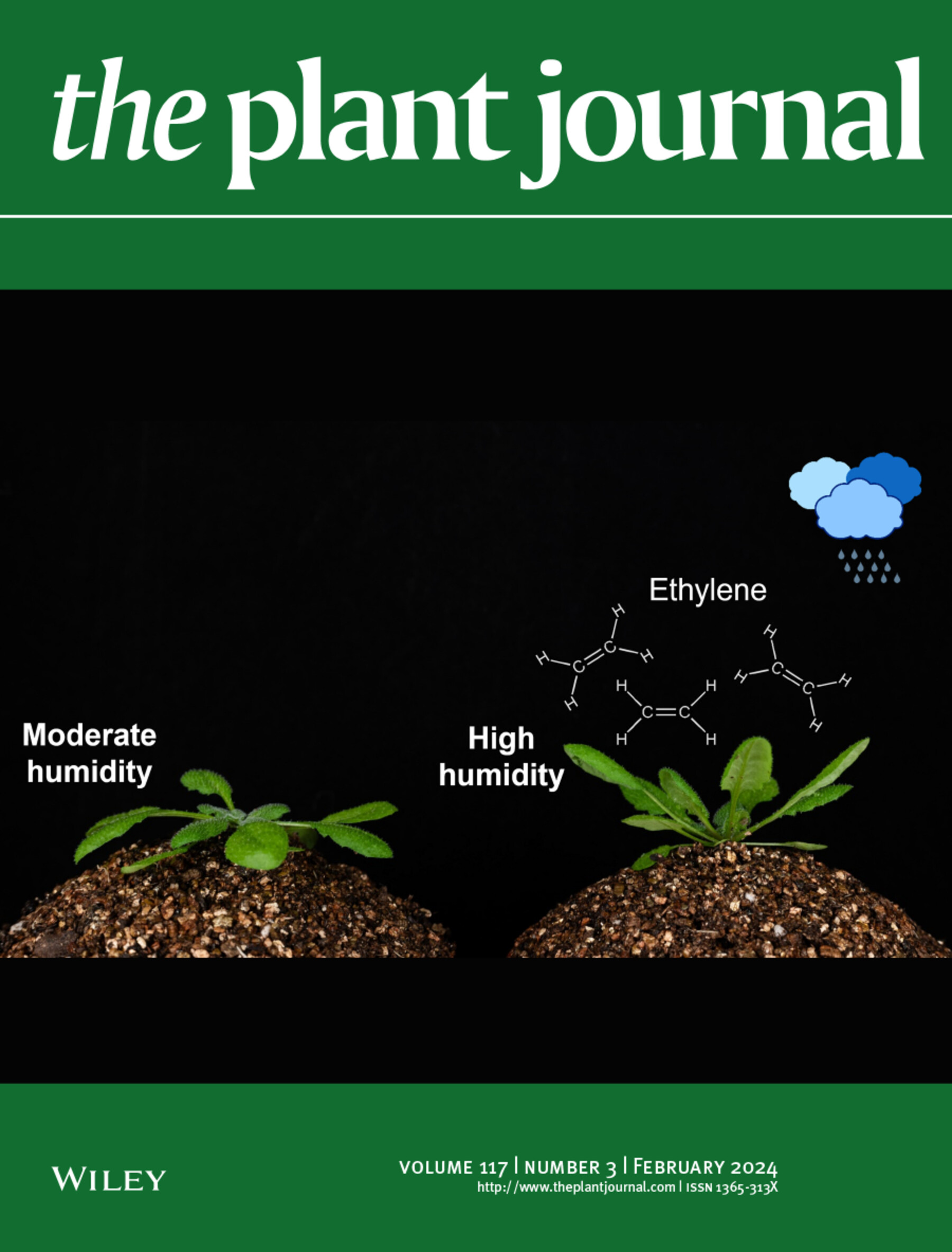Ethylene enhances cold resistance through GhDREB1/CBF in cotton (Gossypium hirsutum L.)
Abstract
Although the role of ethylene in plant growth and development has been widely studied, its regulatory effect on cold tolerance varies among crops, and the mechanisms underlying this variability remain unclear. We used weighted gene co-expression network analysis (WGCNA) to analyse cotton transcriptome changes under low-temperature stress. Differentially expressed genes were significantly enriched in those related to ethylene signalling pathways, suggesting their potential role in cold stress responses. The positive effect of ethylene on cold tolerance in cotton was demonstrated by the effects of exogenously applied ethylene precursor 1-aminocyclopropane-1-carboxylic acid and ethylene synthesis inhibitor α-aminoisobutyric acid. Using CRISPR/Cas9, virus-induced gene silencing, as well as overexpression in tobacco, we obtained evidence indicating that the ethylene synthesis gene GhACO1 enhanced plant cold tolerance. Transcriptome analysis showed that the C-repeat/DRE binding factor (GhDREB1/CBF) was highly expressed in cotton and significantly upregulated by low-temperature stress. The CUT&Tag approach suggested that GhDREB1 binds to the GhACO1 promoter. The direct regulation of GhACO1 by GhDREB1 was further confirmed through luciferase reporter gene and yeast one-hybrid detection. These results suggest that GhACO1 enhances cold tolerance of cotton via the CBF-dependent pathway. Transgenic cotton plants overexpressing GhDREB1 exhibited elevated GhACO1 expression and improved cold resistance, further supporting the regulatory role of GhDREB1. Our results revealed that GhACO1-mediated ethylene synthesis is modulated by GhDREB1, which positively regulates cold tolerance in cotton. These findings provide valuable insights into the molecular mechanisms underlying cold tolerance in cotton and lay the foundation for improving crop resilience to low-temperature stress.


 求助内容:
求助内容: 应助结果提醒方式:
应助结果提醒方式:


